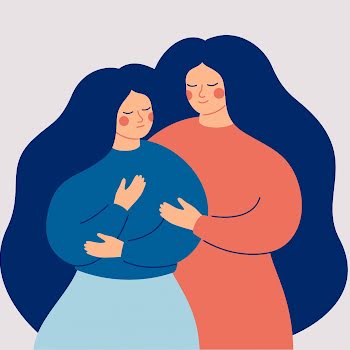
An in-depth look at endometriosis: Causes, risks, symptoms and treatments
By IMAGE
13th Jan 2021
13th Jan 2021
Dr Marion Gluck, founder of The Marion Gluck Clinic, the specialists in bio-identical hormones, explains why endometriosis is so hard to diagnose, the options for treatments and how BHRT can help.
Endometriosis is an often-painful disorder where endometrial cells like those found in the lining of the uterus are found elsewhere in the body, usually on the pelvic peritoneum, ovaries, bladder and bowel. Endometriosis can affect all women and girls of childbearing age. In most cases endometriosis involves the ovaries, bowel or other tissues around the pelvis, however, in rare cases the endometrial tissue may spread beyond the pelvic region.
Many women with endometriosis can feel isolated and unsupported with limited treatment options available and those offered involving surgery or in severe cases a hysterectomy. Managing pain on a day to day basis can leave these women feeling tired, irritable, isolated and frustrated and all with no end in sight.
What Causes Endometriosis?
What makes endometriosis so painful is that the tissue which has grown outside of the uterus continues to act as it normally would.
Each month it thickens, breaks down and bleeds with each menstrual cycle just as it would during a regular period.
This causes painful, sometimes debilitating cramps, as well as other pain in the back, abdomen and pelvis, along with very heavy bleeding and a number of other symptoms.
Endometrial cells travel into the abdominal cavity where they form lesions and cysts, this can cause scarring on organs such as the ovaries, fallopian tubes, bladder and rectum. Lesions can lead to inflammation and nerve growth, causing abdominal pain.
Who is at Risk?
Endometriosis is now experienced by an increasing number of women all over the world, but the exact cause or causes are unknown. There are some things which are believed may cause it, including; retrograde menstruation (when menstrual flows backwards into the abdominal), genetics, the immune system and/or environmental factors.
The presentation of endometriosis varies extensively
Some women experience several severe symptoms whilst others have no symptoms at all, this makes it very hard to diagnose the condition and many women are left undiagnosed for years.
What are the Symptoms of Endometriosis?
Endometriosis is a very painful condition suffered by many women, and the symptoms can include:
- Painful, sometimes disabling, menstrual cramps (dysmenorrhea)
- Chronic pain, typically lower back, pelvic or abdominal pain
- Painful intercourse (dyspareunia)
- Painful bowel movements or painful urination (dysuria)
- Heavy menstrual periods (menorrhagia)
- Premenstrual or intermenstrual spotting (bleeding between periods)
- Infertility
- Low mood and self-esteem
Nutritional Supplements
Estrogen and progesterone work in relation to one another and fibre can help reduce estrogen levels which in turn can help progesterone work more effectively. Your body absorbs estrogen from certain foods and therefore the longer these foods take to get through your digestive system the more estrogen is absorbed. Fibre helps improve your bowel movements and makes sure there is less time for estrogen to be absorbed into your system.
Zinc has an impact on a number of different areas of your body which are essential in the production of progesterone, including the ovaries and your pituitary gland. Zinc increases the production of Follicle Stimulating Hormone (FSH) which in turn causes ovulation and leads to the production of progesterone. Foods that include zinc include Lean Beef, Seafood, Pumpkin and Squash Seeds and Nuts.
Magnesium plays a very important role in hormone regulation and is therefore one of the nutrients that boost progesterone levels. The reason for this is that it helps regulate the pituitary gland which produces FSH, Luteinizing Hormone (LH) and Thyroid Stimulating Hormone (TSH), which lead to the production of both estrogen and also helps to boost progesterone. Foods such as spinach, fish, dark chocolate, whole grains and nuts and seeds all offer magnesium. Alternatively, magnesium supplements can be taken.
Another Treatment Option
This condition can be effectively treated by supplementing the body with hormones. In BHRT (Bioidentical Hormone Replacement Therapy), natural progesterone is seen as a highly effective treatment as it can counteract the effects of estrogen, which naturally stimulates cell growth in tissues containing estrogen receptors and contributes to symptoms of endometriosis. BHRT is prescribed after blood tests to identify the hormone imbalance and is administered via a lozenge or cream.
Endometriosis can be a highly painful and debilitating condition that many women suffer with on a daily basis. Introducing BHRT alongside food groups that boost progesterone can help alleviate symptoms and offer women who have been suffering with no end in sight, a welcome relief from a world of pain.
Dr. Marion Gluck has since gained global acclaim for her work in women’s health and bioidentical hormone balancing therapy which can help reduce menopause and perimenopause symptoms. The Marion Gluck Clinic is the UK’s leading medical clinic that pioneered the use of bioidentical hormones to restore and maintain optimal health and hormone balance for patients. Headed up by Dr. Marion Gluck herself, the clinic uses her pioneering method of bioidentical hormonal treatment to rebalance hormones to improve wellbeing, quality of life and slow down ageing.
Read more: Mother and baby homes: ‘I kept a photo of my son in his christening robe under my pillow until I met him 34 years later’
Read more: ‘I fell into a big hole’: Fearne Cotton on struggling with depression
Read more: ‘Postpartum hair loss is real’: Lea Michele opens up about her decision to get a ‘mom bob’























